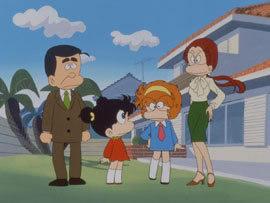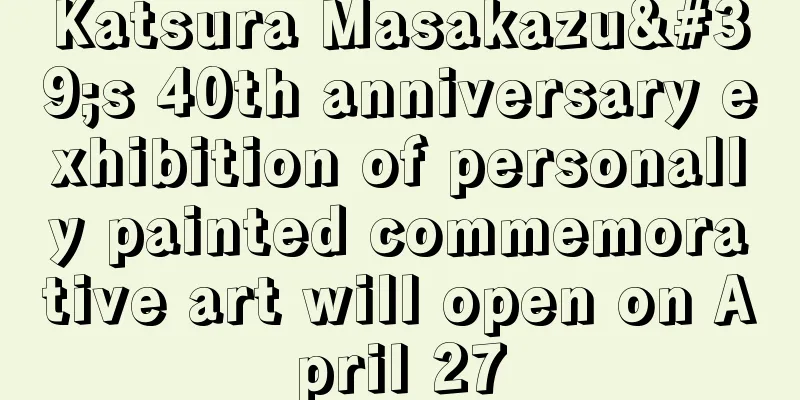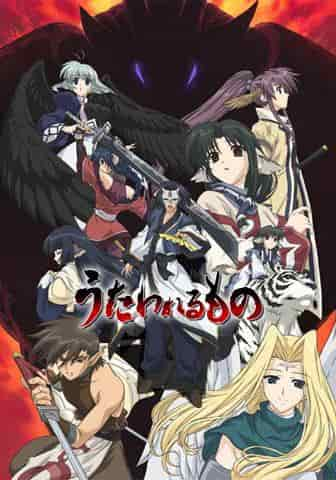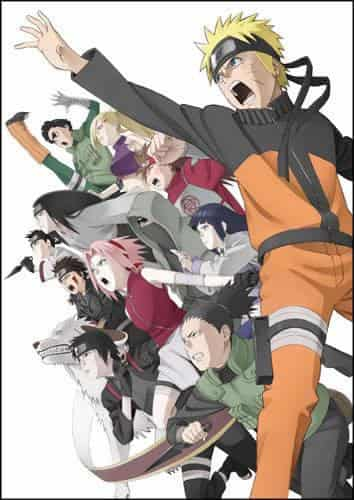The appeal and reviews of "Asari-chan": A classic anime that can be enjoyed by both children and adults

Asari-chan - Looking back on nostalgic Showa animeThe TV anime "Asari-chan," which aired from 1982 to 1983, was extremely popular among children at the time. The original work is a manga of the same name by Mayumi Muroyama, which was serialized in Shogakukan's "CoroCoro Comic" and in student magazines, and was then made into an anime. In this article, we will take a closer look at the appeal of "Asari-chan," the background to its production, the cast and staff, and its subsequent influences. ■ Public MediaTV anime series ■ Original Mediacomics ■ Broadcast periodJanuary 25, 1982 to February 28, 1983 Every Monday 19:00-19:30 ■Broadcasting stationANB ■Frequencieshalf an hour ■ Number of EpisodesEpisode 54 ■Original Story・Original story: Mayumi Muroyama ■ Director・Direction: Osamu Kasai ■ ProductionProduced by: ANB, Toei (animation), Toei Agency ■ StoryThe year is 1982, and the Hamano family is located in a quiet residential area at 10 Makigai-cho, Hotate City, a town on the outskirts of Tokyo. Today, too, the family is in uproar. The protagonist of this story is Asari, an average fourth-grader whose father is Iwashi, a hardworking manager at a major company, her mother is Sango, a private university English major graduate, and her sister is Tatami, a brilliant sixth-grader at Sakuragai Elementary School. Because of her smart sister, Asari is always given the disadvantage, and she should be sulking or becoming a dropout, but she resists fiercely, working hard every day, refusing to be discouraged by her sister's bullying or her mother's harsh treatment. ■ExplanationThis popular manga, which was serialized in Shogakukan's "CoroCoro Comic" and student magazines, has been made into an anime. The original author, Mayumi Muroyama, is a pen name for two sisters, and it is said that she used the actual story of their sisterly quarrel... ■Cast・Clams/Miwa Katsue ・Tatami/Kawashima Chiyoko ・Mom/Mukai Mariko ・Dad/Toyama Kei ・Second-year student/Mori Koichi ■ Main staff・Original story by Mayumi Muroyama ・Planning by Toshio Katsuta and Morihiro Kato ・Production by Hiroshi Takeda ・Screenplay by Tadaaki Yamazaki, Masaki Tsuji, Akiyoshi Sakai, and others ・Chief director by Osamu Kasai ・Direction by Kazumi Fukushima, Takenori Kawada, Osamu Sekita, and others ・Chief animator by Tadashi Shirakawa ・Chief designer by Eiji Ito ・Music by Hiroshi Tsutsui ■ Theme songs and music・OP ■ The charm of Asari-chan"Asari-chan" depicts the protagonist Asari's struggles in her daily life with her older sister Tatami and her family. Although Asari is only mediocre, her efforts to not be outdone by her older sister Tatami captured the hearts of viewers. In particular, the interactions between the sisters and the warmth of the family are depicted, and many children were able to relate to their own relationships with their families and enjoy the story. Another reason for its popularity is that the realistic depiction of events in school and home life made it easy for children at the time to relate to the story. Asari's struggle to get back up despite failure gave courage to children and inspired them to try their best. ■Production Background"Asari-chan" is originally a manga by Mayumi Muroyama, who based her story on real-life interactions between sisters. This realistic portrayal was well received by readers and viewers, and is what led to the success of the series. ANB, Toei Animation, and Toei Agency were involved in the production of the anime, with Osamu Kasai appointed as chief director. The script was written by Tadaaki Yamazaki, Masaki Tsuji, Akiyoshi Sakai, and others, and the music was by Hiroshi Tsutsui. This staff worked together to recreate the world of "Asari-chan" in the anime. ■ The appeal of the castThe cast of "Asari-chan" was also an important factor in enhancing the appeal of the work. Miwa Katsue, who played the main character Asari, skillfully expressed her cheerfulness and energy, creating a character that was beloved by viewers. Kawashima Chiyoko, who played her older sister Tatami, also skillfully portrayed her as an honor student but also showed the occasional strictness that is characteristic of an older sister. Additionally, Mariko Mukai and Kei Tomiyama, who played the parents, also portrayed their characters realistically, showing the warmth of the family. In particular, Kei Tomiyama, who played the father, made full use of his experience as a voice actor to portray the image of a hardworking father. ■ The appeal of the theme songThe theme song for "Asari-chan" was also an important element in enhancing the appeal of the work. The opening theme, "That Girl is Asari-chan," with lyrics by Igai Naoto, music by Kobayashi Asei, arrangement by Takeichi Masahisa, and vocals by Maekawa Yoko and Koorogi'73, captured the hearts of viewers with its bright and lively melody. Similarly, the ending theme, "I'm a Girl," with lyrics by Sunahara Jugo, music by Kobayashi Asei, arrangement by Takeichi Masahisa, and vocals by Maekawa Yoko and Koorogi'73, entertained and moved viewers. ■ Later impacts"Asari-chan" continued to be loved by many fans even after the show ended. In particular, the release of DVDs and Blu-rays has allowed its appeal to be shared with a new generation. The original manga has also been reprinted, allowing many readers to enjoy it once again. Furthermore, "Asahi-chan" has influenced later works as a story depicting the interactions between sisters and the warmth of a family. For example, "Chibi Maruko-chan" and "Crayon Shin-chan," which also depict the interactions between sisters, are said to have been influenced by "Asahi-chan." ■Recommendation details"Asari-chan" is a nostalgic anime from the Showa era that is still loved by many fans today. It is especially recommended for those who like works that depict the interactions between sisters and the warmth of a family. It is also recommended for those who want to feel nostalgic as it is a work that realistically depicts the lives of children at that time. Furthermore, "Asari-chan" is a work that gives courage to children as it depicts the protagonist Asari, who is mediocre but still works hard. It is also recommended for parents who want to teach their children the importance of working hard. "Asari-chan" can be viewed on DVD and Blu-ray. The original manga has also been reprinted, so you can enjoy that as well. Please pick up this Showa masterpiece and enjoy it with nostalgic memories. |
<<: "Memories Album" (1982 version) - Reevaluating the moving songs of everyone
>>: Gauche the Cellist: A thorough review of the fusion of moving story and music
Recommend
"The New Batman" released 4 new character posters to create a suspenseful atmosphere
Recently, the movie "The Batman" releas...
The second season of the famous Korean comic "Tower of God" TV animation has been confirmed and the tower climbing adventure continues
After the TV animation of the famous online comic...
The latest promotional PV of the game adaptation animation "A Girl Who Chants Love at the Bound of This World" is released
The TV animation adapted from 5pb's classic a...
"Jin Yong's Martial Arts World" is scheduled to premiere on June 17th, starring Chen Duling and others
Today (June 11), the TV series "Jin Yong'...
The director's cut of Justice League will be released on May 3rd. DC fans will have a carnival on B station, Youku, Tencent and other DC movies.
Today (April 23), Bilibili Films officially annou...
The new PV of "Monogatari Series: Yumonogatari & Fumonogatari" is released and will be broadcast from July 6
The anime "Monogatari Series", which is...
Marvel series "What If" new character poster zombie Captain America and Hawkeye appear
Recently, the Marvel animated series "What I...
Ghibli President confirms that Hayao Miyazaki's new work "How Do You Live?" is about to be completed
According to Japanese media reports, Studio Ghibl...
Appeal and Review of "SUPERNATURAL": A Thrilling Story of Adventure and Brotherly Love
The appeal and reviews of "SUPERNATURAL"...
Green Goblin actor denies returning for Spider-Man 3
"Green Goblin" actor Dane DeHaan has de...
A thorough analysis of the appeal of Kimagure Orange Road and the unique worldview of I Am a Cat and a Fish
Kimagure Orange Road: I Am a Cat and a Fish: The ...
Star Wars 9's domestic box office Waterloo is expected to be unable to surpass Star Wars 8
"Star Wars 9: The Rise of Skywalker" wa...
"Batman" grossed nearly $600 million worldwide, taking in 74.5 million yuan in three days in China
According to foreign media Variety, the North Ame...
"Goodbye Jamaica" Review: Digging deeper into the classic song
Goodbye Jamaica - A masterpiece of everyone's...
A thorough review of the short film "Macross F: The Labyrinth of Time"! A comprehensive explanation of its appeal and emotion
The appeal and evaluation of "Macross F: The...









